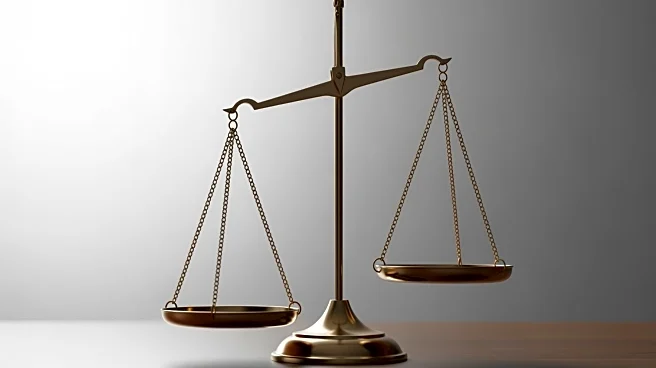What's Happening?
The Supreme Court is reportedly preparing to limit a significant aspect of the Voting Rights Act, a move that could shift the balance of power within Congress. ABC News contributor James Sample and ACLU's
Sarah Brannon have discussed the implications of this potential decision. The Voting Rights Act, originally enacted in 1965, was designed to prevent racial discrimination in voting. The Supreme Court's decision could affect how voting districts are drawn and how elections are conducted, potentially impacting minority representation in Congress.
Why It's Important?
The potential limitation of the Voting Rights Act by the Supreme Court could have profound implications for U.S. politics. It may lead to changes in how congressional districts are configured, which could affect the representation of minority groups. This decision could also influence future election outcomes, potentially favoring certain political parties over others. The balance of power in Congress is crucial for passing legislation and shaping national policy, making this decision significant for lawmakers, political analysts, and civil rights advocates.
What's Next?
If the Supreme Court proceeds with limiting the Voting Rights Act, there may be legal challenges and public protests from civil rights organizations and minority groups. Political leaders and advocacy groups are likely to respond with calls for legislative action to protect voting rights. The decision could also prompt discussions on electoral reform and the need for new laws to ensure fair representation in Congress.
Beyond the Headlines
The ethical and legal dimensions of this decision are considerable, as it touches on fundamental democratic principles such as equal representation and the protection of minority rights. Long-term shifts in political power dynamics could emerge, influencing policy decisions and the overall direction of U.S. governance.










